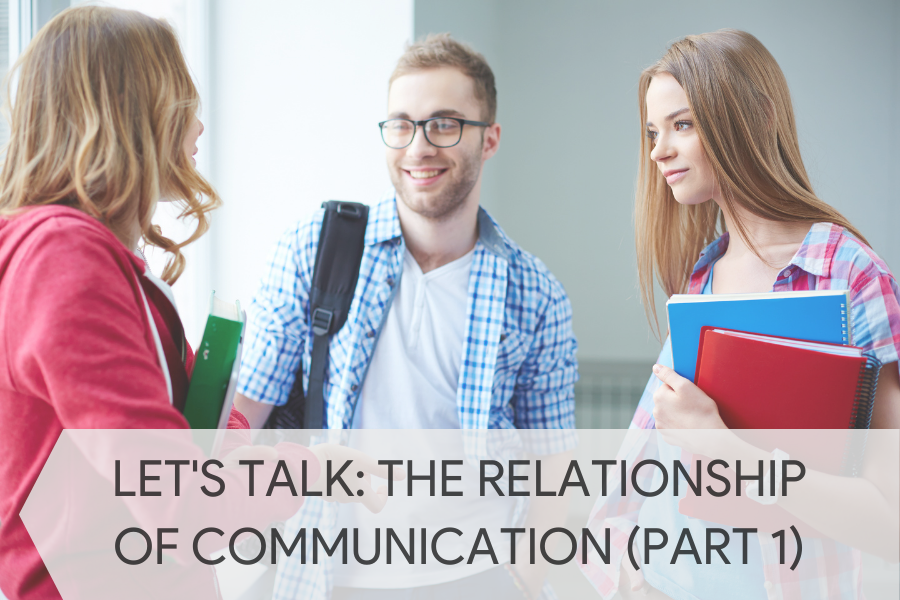The Relationship of Communication
So, what is the relationship of communication? Let’s talk about it. We are not sure what happens to our children when they turn thirteen, but it almost seems like aliens somehow take over their minds changing their thoughts, behaviors, and how they communicate.
The once, “Will you please go and clean up your room?” is now code for: “Why are you trying to oppress me and ruin my life.”
The once, “Hi. Honey, how was your day today?” had an appropriate response of “Great!” The emotional response was congruent with the words coming out of their mouth.
Then teenage transformation happens. All of a sudden, it becomes so confusing. You ask, “How was your day?” They respond as they slam down their books in a big huff, “Fine!”
Breaking Down Communication
Where does the breakdown in communication start? How do we go back to the time when “fine” actually means “fine” and not the “I am fine” —- “I got a D on my math test, my best friend said I was fat, and my brother ate the last pudding.”
When do we stop trying to interpret our teenager’s communication and twist it into what we think they are saying or meaning and just LISTEN?
I want you to imagine a strong communicative interaction with your teenager and know that it is based on love, honesty, and respect.
How is this accomplished? The answer is that communication is based on the RELATIONSHIP and not the words you speak or meaning behind it.
If your relationship with your teenager is strained, you may find the communication between the two of you might be strained (like down to one-word interactions).
Three Simple Communication Steps
Helping parents find better ways to communicate with their teens and even with other children in the home.
Step One: Relationship With Self
This step is the foundation step to all relationships. How do you feel about yourself? Are you overly stressed, do you struggle with anger, are you grieving from a loss? Do you struggle with depression? If you find it challenging to communicate with others that you love, take a look at yourself and see if you have work on yourself to do.
Step Two: Relationship with Spouse or Support System
The parental relationship seems to have a direct effect on the children in a family system. If there Is conflict within that relationship, it will influence the relationship you have with other family members.
If you are not married, look at the communication you have with your support system. Is the relationship respectful, loving, and honest? Are you communicating differently to your support system than with your children?
Step Three: Relationship with Your Child
When is the last time you had one on one time with your teenager or child? Is the time quality or just quantity? Are you feeling shut out or distant? Is everything a fight? The communication you have with your child will reflect your relationship.
In these simple steps, you will find that if there is a problem in step three, step down to step two, if there is conflict in step two, step down to step one. If there is conflict within yourself, work on it, and rebuild the relationships in your life.
By rebuilding the relationship with your teenager, they will, in turn, be more open and honest in their communication with you.
Trust is established, and they feel your love and concern, and most importantly, they RESPECT what you have to say.
Positive Parenting Tips & Reminders
Communication and Relationships go hand in hand. Remember the three simple steps and be mindful which step you need to fine-tune. The next time your teenager walks in and the aliens have taken over their brains again, pull them aside and say, “Let’s Talk.”

